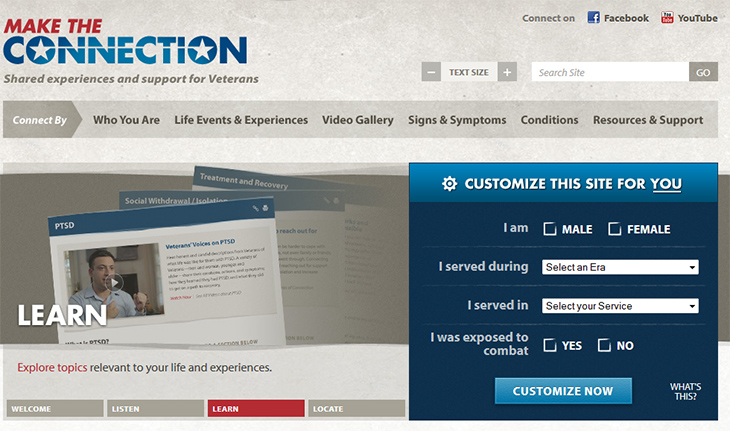All too often, we hear or read about Veterans who are in distress or having difficulty adapting to life after service in the military. Although these stories are troubling, we also know that hundreds of thousands of Veterans are changing their personal headlines by taking steps to live healthy, productive lives with the help of resources that VA, Veterans Service Organizations and community-based organizations provide.
I believe that each of us has a responsibility to broadcast these stories of resilience and recovery — and, in doing so, strengthen the already powerful movement of Veterans who are seeking support and in the process, inspiring other Veterans to reach out. When we help share their stories, we join them in dismantling stigma which prevents so many others from seeking support for mental health challenges.
Consider Arthur, who served in the U.S. Army during the Vietnam War. When he came home from his deployment, he had a hard time adjusting to civilian life but didn’t know how to talk about it. Unable to cope, Arthur fell into a cycle of anger, drugs and gambling. Eventually, his girlfriend encouraged him to visit a VA doctor who diagnosed Arthur with Post-Traumatic Stress Disorder. Arthur was able to get treatment for his condition and joined a support group for Vietnam Veterans. By connecting with other Veterans, Arthur found the support he needed to change his life for the better.
Or Trista, who served 16 years in the Marines, Navy, and National Guard and experienced military sexual trauma during her service. This resulted in feelings of isolation while she was in the military and outbursts toward her husband after she left the service. With her husband’s encouragement, Trista began seeing a psychologist at VA. That counsel helped her make progress in her recovery. She is sharing her story to encourage fellow Veterans to access similar resources for recovery.
The website, Make the Connection, features both Arthur and Trista’s stories as well as hundreds of Veterans like them talking about their experiences and the steps they took to lead happier, healthier lives. I’m proud to share this unique resource which gives voice to Veterans talking openly and honestly about their life journeys and encourages their peers to do the same. That’s why Make the Connection is so effective — it’s by Veterans for Veterans. Please help us all make the connection!

Topics in this story
More Stories
Veteran Byron Potier weighed almost 300 pounds and was tired and lethargic. He was the perfect candidate for gastric sleeve surgery.
How much do you know about VA care, benefits and services? Don’t miss out on what you've earned—check out the "2025 VA Federal Benefits Guide for Veterans, Dependents, Survivors, and Caregivers" handbook to learn more.
Feeling stressed? Your breath can help you relax and focus. Take 3 minutes to reset and prioritize your well being for this week's #LiveWholeHealth practice.






